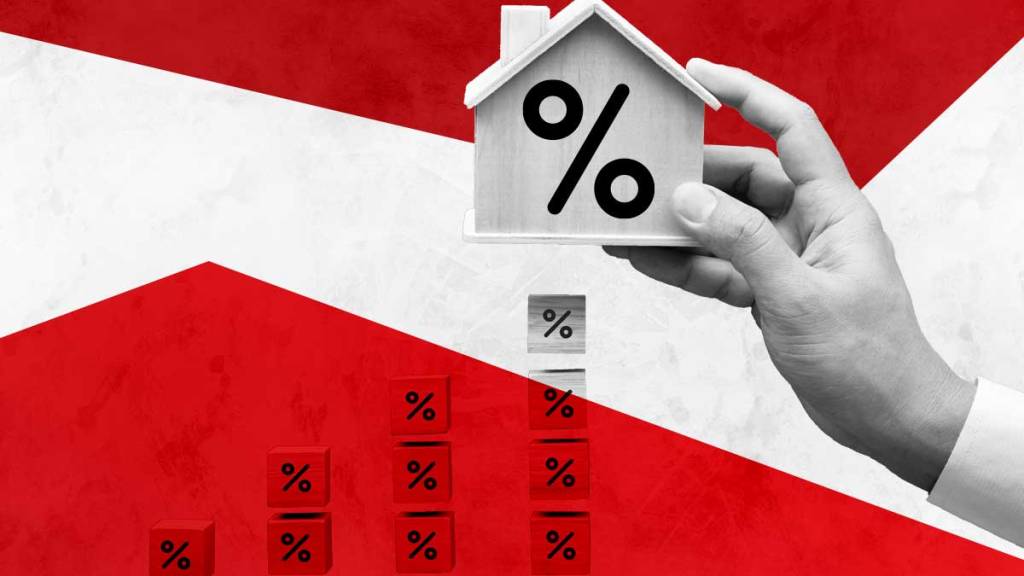As expected, the Federal Reserve slowed the rate hikes in 2023 amid cooling inflation data, sparking hopes of a recovery for the housing market this year.
The Federal Open Market Committee (FOMC) on Wednesday afternoon decided to raise the federal funds rate by 25 basis points to the 4.50%-4.75% range.
The decision follows four subsequent 75 basis point increases, which occurred in June, July, September and November, and a 50 basis point increase in December.
The Fed started to hike rates in March 2022 in order to pull inflation back to the 2% target. Prices had increased significantly based on supply and demand imbalances related to the Covid-19 pandemic and Russia’s war against Ukraine.
However, the Consumer Price Index (CPI) rose by 6.5% in December compared to one year ago, according to the Bureau of Labor Statistics — the latest sign that inflation is cooling. That’s the smallest 12-month increase in the index since the year ending in October 2021.
According to the FOMC, recent indicators point to modest growth in spending and production, robust job gains in recent months, low unemployment rate and elevated inflation. Meanwhile, Russia’s war against Ukraine is causing economic hardship and elevating global uncertainty.
“The Committee anticipates that ongoing increases in the target range will be appropriate in order to attain a stance of monetary policy that is sufficiently restrictive to return inflation to 2% over time,” the FOMC said in a statement.
The FOMC said it will continue reducing its holdings of Treasury securities and agency debt and agency mortgage-backed securities, as described in its previously announced plans.
No grounds for complacency with inflation
Fed Chairman Jerome Powell told journalists on Wednesday afternoon the U.S. economy slowed significantly last year – and the expectation is that growth will continue at a “fairly subdued” level in 2023.
Powell mentioned that the recent developments regarding inflation are encouraging, but that’s not grounds for complacency. Fed officials need “substantially more evidence to be confident that inflation is in a sustained downward path,” according to Powell.
In particular, the housing services sector requires attention, as its prices will continue to increase for a while. The expectation is that it will decline as new leases continue to be lower, according to Powell.
“Shifting (the rates hikes) to a slower pace will better allow the committee to assess the economy’s progress toward our goals, as we determine the extent of future increases required to attain sufficiently restrictive stance,” Powell said.
Regarding the Fed’s next steps, Powell said it’s difficult to manage the risk of doing too little and finding out six or 12 months later that they were close but didn’t get the job of bringing inflation to the 2% target done. Meanwhile, Powell added that the Fed has no incentive or desire to overtighten.
Despite several questions on the subject, Powell did not indicate when potential pauses in the rate hikes may happen. He also said that, given the current outlook, he does not see the committee cutting rates this year. The committee will release its updated economic projections in its next meeting, which is scheduled for March 21 and 22.
Impact on the housing market
With the Fed decelerating its rate increases, mortgage rates recently declined after reaching the 7% mark in October 2022. At HousingWire’s Mortgage Rates Center, the Optimal Blue data shows the 30-year fixed rate was at 6.16% on Tuesday, down four basis points from two weeks prior.
But monetary policy observers are already looking ahead to try and understand what the Fed’s next steps may be — and the potential impacts on the housing market.
According to Doug Duncan, senior vice president and chief economist at Fannie Mae, the Fed is going to hold the fed funds or sharp rates high until they are convinced they’ve expelled inflation.
“But we think that rates will come down — primarily because of a recession,” Duncan said in an interview with HousingWire.
Last April, Duncan and his team at Fannie Mae added an expectation to their forecasts of a recession in the first quarter of 2023 due to the Fed’s moves. And, their latest forecast ultimately included a 0.6% decline in the GDP for the year, as a soft landing seems plausible, according to the team.
For the housing market, declining rates mean home price appreciation will remain slow.
“Those things will improve affordability, allowing housing to take off because demand is still very strong relative to supply,” Duncan said.
According to Fannie’s latest forecast, however, mortgage rates will still be at 6.1% at the end of 2023. However, Duncan said rates might go down even further to the high 5%.
To George Ratiu, Realtor.com senior economist, the Fed is poised to continue pushing the funds rate higher this year in order to bring inflation near the 2% target.
“For buyers and sellers, this signals additional adjustment in median prices in the months ahead,” Ratiu said in a statement.
Nik Shah, CEO at Home.LLC., forecasts that the Fed will increase rates by 25 basis points in its March meeting. When rates achieve 4.75%-5%, three scenarios can happen.
“If the Fed keeps hiking rates past 5%, we’ll see an equities correction and a housing market correction. If the Fed pauses hikes at 5%, the 30-year mortgage will keep on declining to around 5.80% – home prices will bottom and slowly start climbing again. If the Fed pivots and starts dropping rates, mortgage rates will decay even faster, and we’ll end 2023 with a 4% year over year appreciation in home prices,” Shah said.






